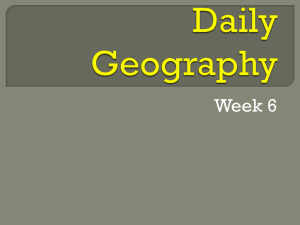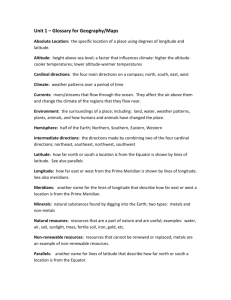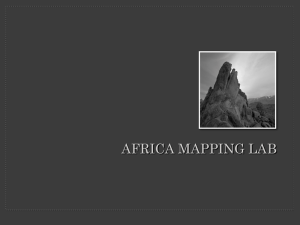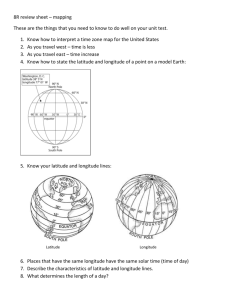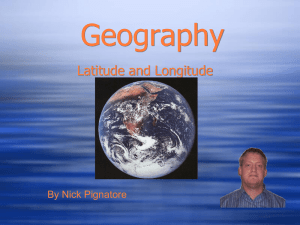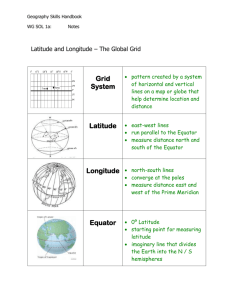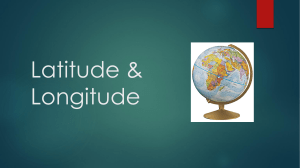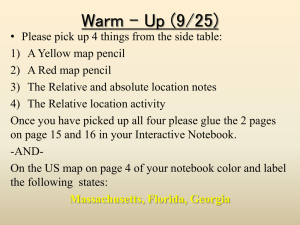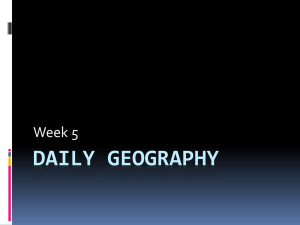Q1 w2 vocabulary - Atlanta Public Schools
advertisement
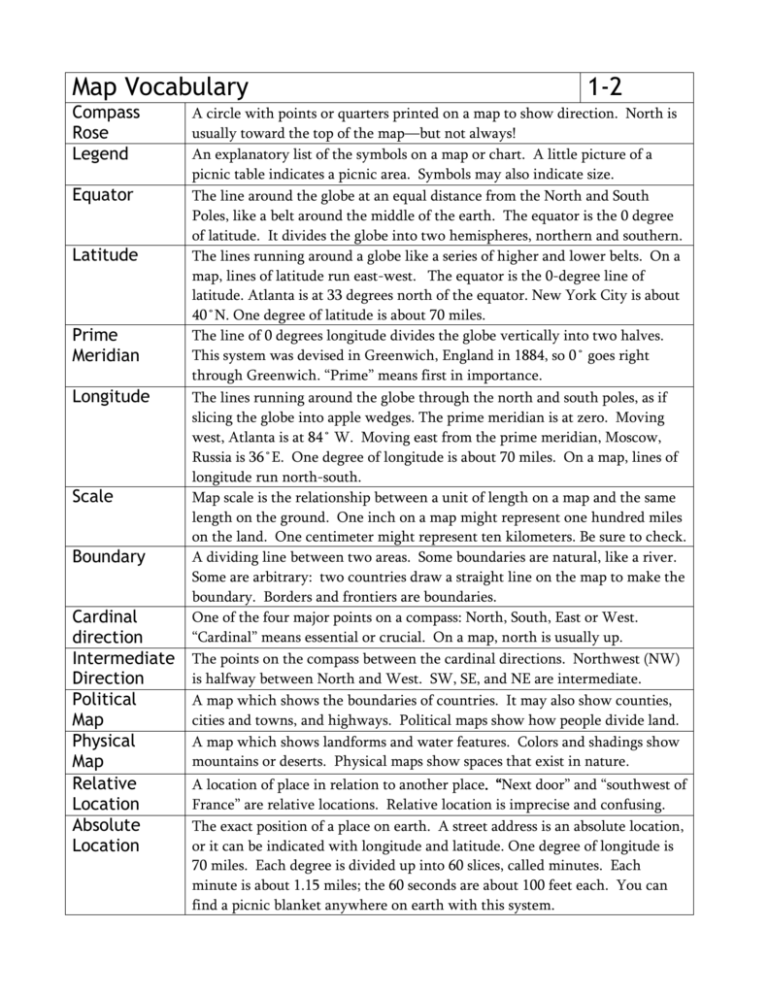
Map Vocabulary Compass Rose Legend Equator Latitude Prime Meridian Longitude Scale Boundary Cardinal direction Intermediate Direction Political Map Physical Map Relative Location Absolute Location 1-2 A circle with points or quarters printed on a map to show direction. North is usually toward the top of the map—but not always! An explanatory list of the symbols on a map or chart. A little picture of a picnic table indicates a picnic area. Symbols may also indicate size. The line around the globe at an equal distance from the North and South Poles, like a belt around the middle of the earth. The equator is the 0 degree of latitude. It divides the globe into two hemispheres, northern and southern. The lines running around a globe like a series of higher and lower belts. On a map, lines of latitude run east-west. The equator is the 0-degree line of latitude. Atlanta is at 33 degrees north of the equator. New York City is about 40˚N. One degree of latitude is about 70 miles. The line of 0 degrees longitude divides the globe vertically into two halves. This system was devised in Greenwich, England in 1884, so 0˚ goes right through Greenwich. “Prime” means first in importance. The lines running around the globe through the north and south poles, as if slicing the globe into apple wedges. The prime meridian is at zero. Moving west, Atlanta is at 84˚ W. Moving east from the prime meridian, Moscow, Russia is 36˚E. One degree of longitude is about 70 miles. On a map, lines of longitude run north-south. Map scale is the relationship between a unit of length on a map and the same length on the ground. One inch on a map might represent one hundred miles on the land. One centimeter might represent ten kilometers. Be sure to check. A dividing line between two areas. Some boundaries are natural, like a river. Some are arbitrary: two countries draw a straight line on the map to make the boundary. Borders and frontiers are boundaries. One of the four major points on a compass: North, South, East or West. “Cardinal” means essential or crucial. On a map, north is usually up. The points on the compass between the cardinal directions. Northwest (NW) is halfway between North and West. SW, SE, and NE are intermediate. A map which shows the boundaries of countries. It may also show counties, cities and towns, and highways. Political maps show how people divide land. A map which shows landforms and water features. Colors and shadings show mountains or deserts. Physical maps show spaces that exist in nature. A location of place in relation to another place. “Next door” and “southwest of France” are relative locations. Relative location is imprecise and confusing. The exact position of a place on earth. A street address is an absolute location, or it can be indicated with longitude and latitude. One degree of longitude is 70 miles. Each degree is divided up into 60 slices, called minutes. Each minute is about 1.15 miles; the 60 seconds are about 100 feet each. You can find a picnic blanket anywhere on earth with this system. Map Vocabulary Label this. N 1-2 D hw C What is this called? ________________ __________ What are the four cardinal directions? ___________, ____________, ___________, ____________ What are the four intermediate directions? _________________, ___________________, _________________, ___________________ What does this line show? _____________________ Is it a line of longitude or latitude? ________________ Does it go east-west, or north-south? _________________ Is Atlanta north or south of this line? ____________ What degree number does this line have? ___˚ What does this line show? ___________________________ Is it a line of longitude or latitude? ________________ Does it go east-west, or north-south? _________________ Is Atlanta east or west of this line? ____________ What degree number does this line have? ___˚ These are the Galapagos Islands. Is Isla Santiago north or south of the equator? __________ Isla Espanola is east of Isla Santa Maria. True of false? ____ Is that an absolute or relative location?_____________ About how wide is Isla Santiago in miles? ________ In kilometers? __________ Is Isla Fernandina east or west of 90˚W? 90˚ W __________. Is it 92˚W or 88˚W? _____ The map on the left shows the mountains of Germany. The map on the right shows the 16 states of Germany. Which is a political map? _______. Which is a physical map? _________ What would you use a physical map for? _________________________________________
